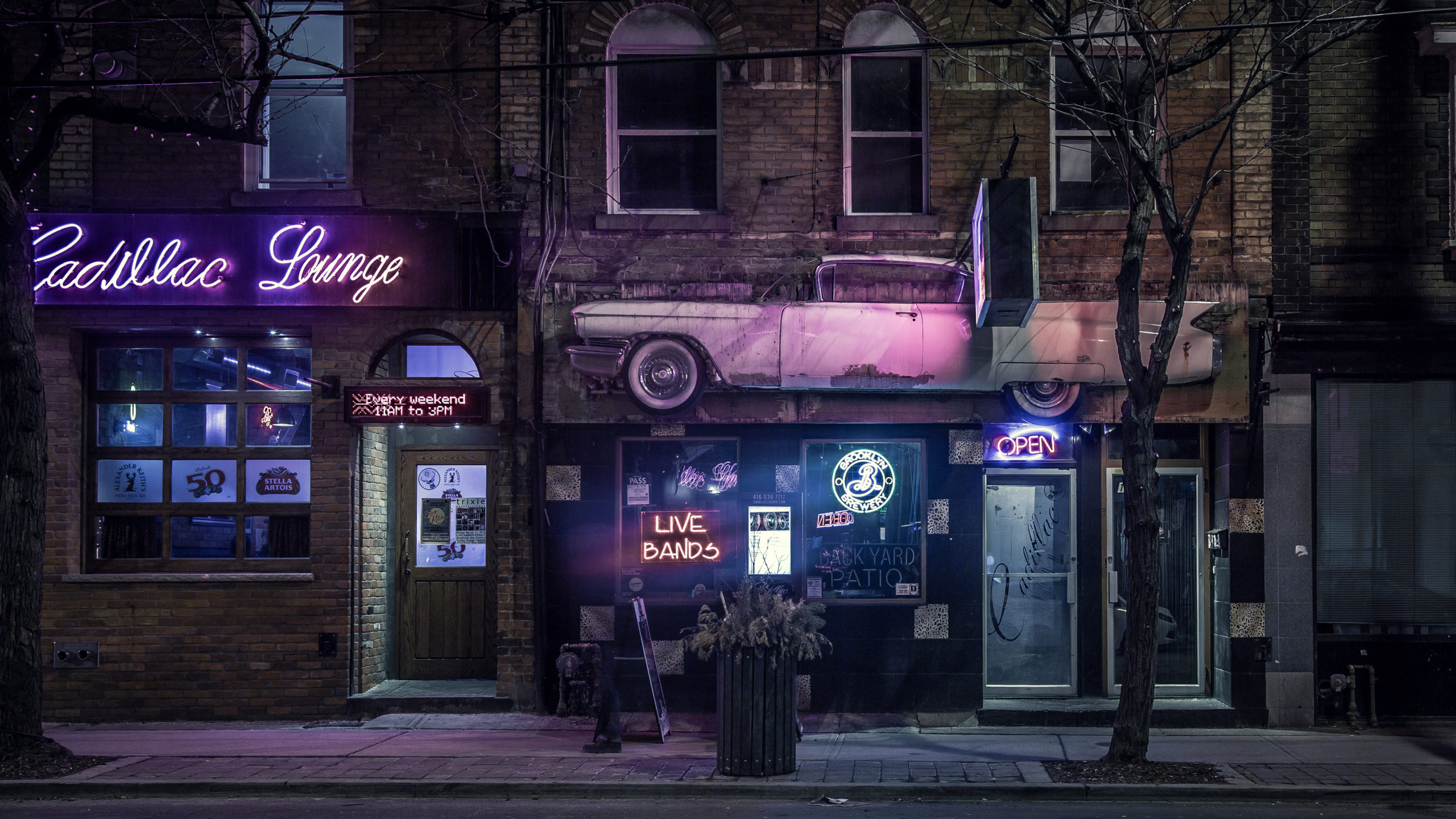I couldn’t move. Stuffed hundreds deep into a tacky, plush-red nightclub in midtown Manhattan that smelled of fresh sweat and cheap vodka, I was stuck in place, a proverbial halter-topped sardine of the night, waiting for Steve Aoki’s set to start while wearing a surprising amount of bracelets and glitter, wondering if I looked anything close to cool.
This was to be my first EDM experience. (Yes, I know, with the genre fully ingrained into millennial music predilections, I’m woefully behind but what else do you expect from a girl who still uses her library card?) As neon light beams whizzed across my face and a fidgety audience danced in awkward, frenetic spasms before me, I realized I didn’t know what to expect. Although, if the stranger whose elbow kept knocking into my stomach was any indication of what the night held, I was screwed.
Of course, as with most uninformed assumptions, this one was wrong, and when Aoki came out to play, his long, raven-colored hair thrashing across his face, slender body hurtling across the stage with an energy both irrepressible and passionate, the crowd melted away. Nothing else mattered to me in that moment except the pulsating, addictive beats Aoki produced and the steadily rising and falling rhythms he was orchestrating with just a computer, his fingers and an oft-swigged bottle of champagne. I wasn’t worried anymore about feeling like glittery freeze-dried supermarket food; I was having myself a time. Damn, this dude was good.
As it turns out, I’m not the only one who knows it.
A child of thick, paternal shadows, Aoki grew up with a wildly successful father—Hiroaki “Rocky” Aoki—better known as the man behind those little Benihana restaurants, also an award-winning hot air balloonist, Olympic wrestler and backgammon champ, among other incredible accomplishments. Yet intimidation proved motivation for young Aoki who was determined and not deterred by his father’s overwhelming fame and fortune.
The aspiring musician began his career humbly, however, as the founder of The Pickle Patch, a tiny punk-rock music venue in Isla Vista, CA that Aoki launched while at the University of Santa Barbara. But he would soon channel his father’s hunger for greatness and carve out a legacy all his own.
Fresh off a newly released Netflix documentary—I’ll Sleep When I’m Dead—and a 20-year anniversary celebration of his thriving record label, Dim Mak, Aoki is today’s reigning EDM unicorn-genius (and if his resume doesn’t prove it, just look at his luscious, flowing locks). So when he delved into his philosophy on business, branding and beats with Fast Company, I had to share my five favorite Aoki quotes from the interview to show you just how this wickedly creative DJ spins it …
https://www.instagram.com/p/BJgDBHXAhFu/?taken-by=steveaoki
1. Be unfailingly deliberate and consistent.
“With anything, people want to work with brands that are consistently saying something they agree with or representing a part of the culture that’s consistent and solid and stable,” said Aoki to Fast Company‘s KC Ifeanyi.
https://www.instagram.com/p/BJViXIugdlm/?taken-by=steveaoki
2. If you don’t know how to do it, do it anyway.
“I was never traditionally taught in anything,” Aoki described. “I was never traditionally taught in how to start a business. I was never traditionally taught how to DJ. I was never traditionally taught how to play guitar or sing or produce electronic music. I have it in front of me and I figure out this does that and that does this, and I do it over and over again.”
https://www.instagram.com/p/BI1j6R5guxm/?taken-by=steveaoki
3. The best way to get it done lies within you.
“You have to do with what you have in front of you and there’s no instruction manual,” explained Aoki. “And you don’t need to do it the way every one else has done it—you do it in whatever way is suitable to you.”
https://www.instagram.com/p/BJBYUyqAIrc/?taken-by=steveaoki
4. Stay connected, stay relevant and always be thinking about how you’re changing the lives of others.
“The most important thing is am I still connecting with people?” Aoki asked. “Is my music still relatable? Is it still part of what people want to hear? Are they affected by it? And I get a first-hand sense of that when I play.”
https://www.instagram.com/p/BIUq6gqAjbu/?taken-by=steveaoki
5. Forget the word ‘brand’ because it’s essentially meaningless. Focus on building a community. And then make that community count.
As Aoki said when defining the act of building a community: “It’s a genuine passion and interest to fill this ecosystem with important shit.”



Great article! Thanks Melissa, you write really well. I enjoyed your writing style 🙂